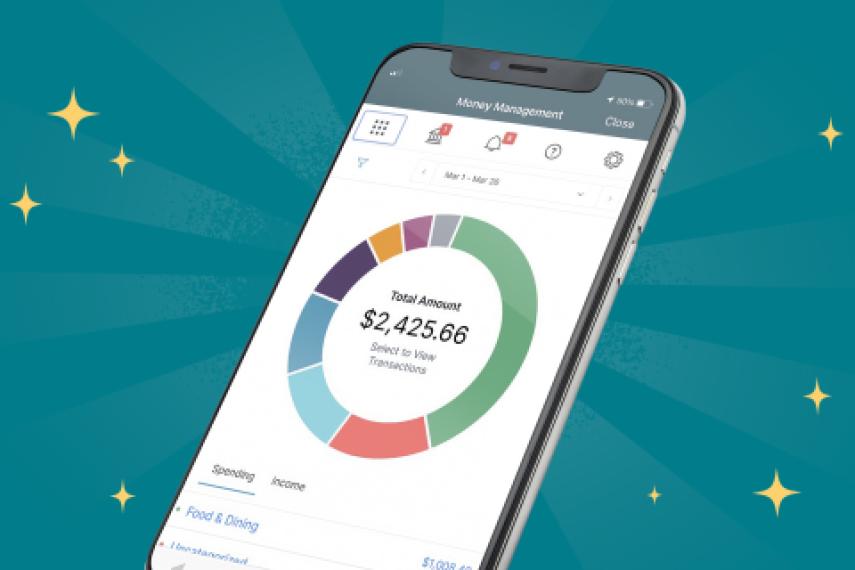
Do you ever wonder where all your money goes each month? Building a budget that works for you starts with understanding your income and expenses. By getting a clear view of your finances, you can take charge, make smarter spending decisions and work toward your goals, whether that’s saving for a dream vacation, paying off debt or simply feeling more secure. The good news? It’s easier than you think.
Here’s how to get started!
Step 1: Track Your Income
Determine how much money you bring in each month. This includes any income you receive, whether it’s steady or occasional. Start by listing all your sources, such as:
- Your paycheck
- Investment earnings
- Side jobs or occasional income
- Financial aid or government support
Regular Income
Regular income is money you receive on a consistent basis, such as your paycheck or monthly deposits from investments. Even if the amount changes slightly, such as hourly wages, it’s still considered regular income.
Irregular Income
Irregular income is money you receive unpredictably. It might come from side gigs, freelance work or occasional passive earnings. Since it’s less reliable, plan your budget around your regular income and treat irregular income as extra.
Step 2: Track Your Expenses
Figure out where your money is going. Keep track of everything you spend, no matter how small, from coffee runs to getting gas. You can use a budgeting app, a spreadsheet or even a simple notebook.
Fixed Expenses
Fixed expenses are predictable costs that stay roughly the same each month. Examples include:
- Rent or mortgage payments
- Insurance premium
- Phone, internet and cable bills
- Loan payments
Utilities like water or electricity also fall into this category assuming they’re fairly consistent.
Variable Expenses
Variable expenses change month to month and are trickier to budget for. These include:
- Groceries
- Gas
- Clothing
- Credit card payments
- Gifts
To budget for these, it may be helpful to look back at your last 2-3 months of spending and calculate an average. (Our free online tool Money Tracker makes this quick and easy!) For example, if your grocery bills were $400, $450 and $500, your average would be about $450. You can use this as a guideline moving forward.
Discretionary Expenses
Discretionary expenses are generally considered “wants” rather than “needs.” While it’s nice to enjoy these, they’re optional and can be adjusted if needed. Examples include:
- Dining out
- Streaming services
- Coffee shop visits
- Non-essential home items
- Leisure activites
Prioritize your fixed and variable expenses first, then allocate what’s left to these extras.
Step 3: Factor in Savings and Debt
Once you’ve accounted for your expenses, plan for both debt repayment. This is how you build financial security and reduce stress over time.
Savings
Aim to save a percentage of your income each month. Start with an emergency fund and build up to 3–6 months’ worth of expenses. Keep these funds separate from your checking account to avoid spending them.
Debt Repayment
Go beyond minimum payments on credit cards and loans whenever possible. Focus on paying down one debt at a time, putting extra money toward the one with the highest interest or smallest balance.
Why Understanding Your Money Matters
Taking the time to track your finances gives you a clearer picture of where your money goes. A good budget isn’t just about restrictions; it’s about making your money work for you. Start small (even just tracking your money to gain awareness is good first step), stay consistent and enjoy the peace of mind that comes with being in control of your finances.
Take it Easy on Yourself
Want to make budgeting easy? Try Horizon's free online money management tool, Money Tracker! Money Tracker does the heavy lifting of recording your transactions and calculating your income and expenses for you. Plus, you data is displayed in easy to read charts and graphs to help you visualize your money and start making smart better decisions. Why wait? Try Money Tracker for free today.
